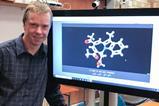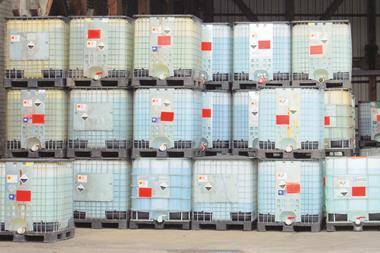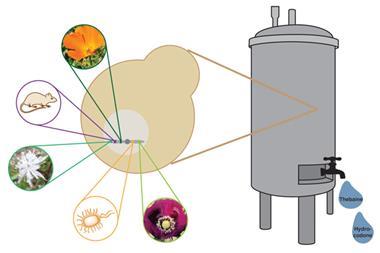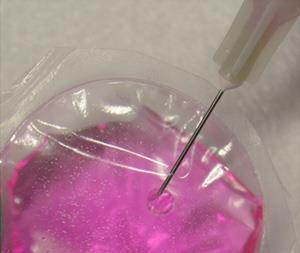‘Just add water’ reaction pellets allow drugs and vaccines to be produced without special equipment or training
A way to make useful biomolecules on demand has been developed by researchers in the US, who have used freeze-dried cell machinery and DNA to make dry ‘reaction pellets’ that can be activated simply by adding water. The system could allow drugs and vaccines to be made in remote locations without the need for special training, high-tech equipment or cold storage.
‘This technology upends the traditional paradigm of biomolecular manufacturing, decentralising the production of biomolecules, which otherwise need to be produced in large facilities, distributed globally and usually kept refrigerated throughout the entire process,’ explains James Collins from the Massachusetts Institute of Technology (MIT), who led the research team.
The platform uses freeze-dried reaction pellets – mixtures of chemical components and cell parts that are needed to produce a protein – that can be stored and transported at room temperature, then mixed with water and a DNA template when ready for use. The pellets do not contain any whole cells, but include cellular protein-producing machinery such as ribosomes, along with the enzymes involved in transcription and translation. Amino acids, nucleotides, salts and buffers are also included in the mix.
‘The reaction pellet ingredients can be compiled from commercially available sources or prepared in-house using lysates of bacterial cells. The DNA template can be freeze-dried into the pellet or freeze-dried separately and added later with water at the point-of-care,’ says Collins. The team demonstrated that a variety of useful biomolecules can be produced in this way, including enzymes, antibodies, 10 different antimicrobial peptides and vaccine antigens for diphtheria and botulinum.
The reaction pellets can be stored at room temperature for at least a year, are sterile and can be used with only a little training. Once hydrated, the end products can be ready in just a few hours.
‘This approach has the potential to increase and expand accessibility to therapeutics and other biomolecules – for example diagnostic antibodies … and ultimately lower production costs,’ says Collins. ‘[One] important application is on-site vaccine production, which would aid in the crucial process of immunisation, especially in developing and low-resource regions where the lack of infrastructure resources make cold chain storage difficult to maintain.’
Michael Jewitt from Northwestern University in the US says the work offers an ‘exciting vision for the future’. ‘There is work to be done to make this technology a reality in practice, but this is an important first step,’ he says. ‘Imagine how rapid access to vaccines in remote settings could change lives, or how [new manufacturing methods] might promote better access to costly drugs.’
Next, says Collins, ‘We will continue to refine this procedure and expand and functionally validate the repertoire of protein-based biomolecules that can be produced.’
References
K Pardee et al, Cell, 2016, 167, 1 (DOI: 10.1016/j.cell.2016.09.013)

















No comments yet